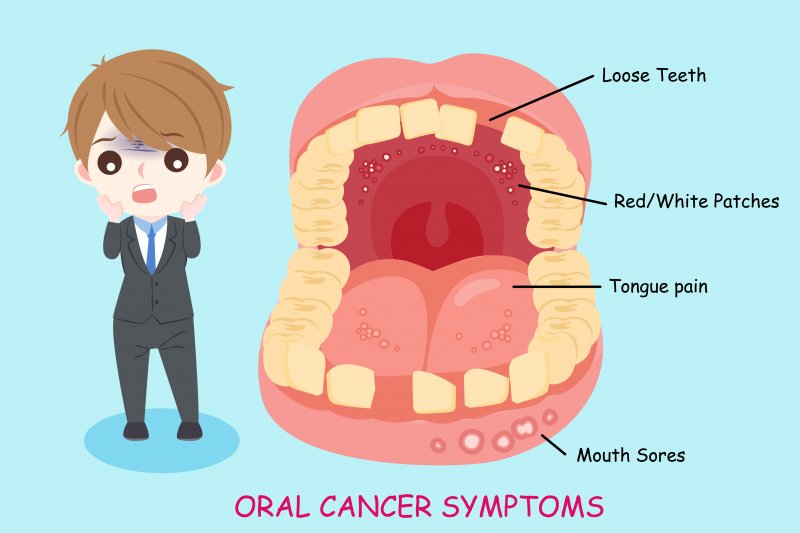
If you’ve gotten a dental checkup recently, you’ve probably noticed that most of them include an oral cancer screening. It only takes a few seconds, but in many ways, it’s one of the most important parts of the exam.
April is Oral Cancer Awareness Month, which is dedicated to educating people about this serious and all-to-common condition. If you want to know more about it, here’s some information about this disease.
How Common is Oral Cancer?
This year, it’s estimated that over 54,000 new cases of oral cancer will be diagnosed across the U.S. It’s estimated that someone around the world is killed by the disease every hour.
If you have the condition, early detection is the most important way to improve your long-term prognosis. Given its commonality, it’s a good idea for everyone to be aware of its risk factors and symptoms.
What Are the Risk Factors for Oral Cancer?
There are several risk factors for oral cancer, and the primary cause of it can slightly affect how it presents in people.
Many lifestyle choices can put people at an increased risk of developing the condition. In particular, smokers and heavy drinkers over the age of 50 are at the highest risk of getting infected with oral cancer.
However, the condition has also been connected to the sexually transmitted virus HPV. In over 99 percent of people who contract the virus, it fades on its own; in the remaining one percent, however, the virus will lay dormant and wreak havoc later down the line. The chances of this happening are significantly more likely in men than in women.
What are the Signs of Oral Cancer?
Oral cancer can be a little bit difficult to diagnose, or rather, hard to differentiate from other conditions. There are a wide variety of symptoms and the ones you’re likely to see depend on the core cause of the disease.
However, if any of these conditions are caused by oral cancer, they won’t heal even after several weeks. The symptoms include:
- Sore or Ulcer
- Red, white, or black discoloration
- Bleeding sore
- Hard spot on the border of the tongue
- Growth
- Painless, immobile lump on the neck
If caused by HPV, these symptoms may include:
- Sore throat
- Painless, swollen tonsil on just one side
- Persistent Cough
- Difficulty Swallowing
- Earache in one ear
About Our Practice
At Transforming Smiles, everyone on our team will work their hardest to ensure that our patients are getting the high-quality treatment that they deserve. When you visit our office, you can be sure that you’re in the hands of highly qualified experts with extensive training in their field. We’ve also outfitted our office with the latest dental technology to ensure that people can get the most streamlined care possible.
If you have any questions about oral cancer, we can be reached at our website or by phone at (770) 995-7616.
